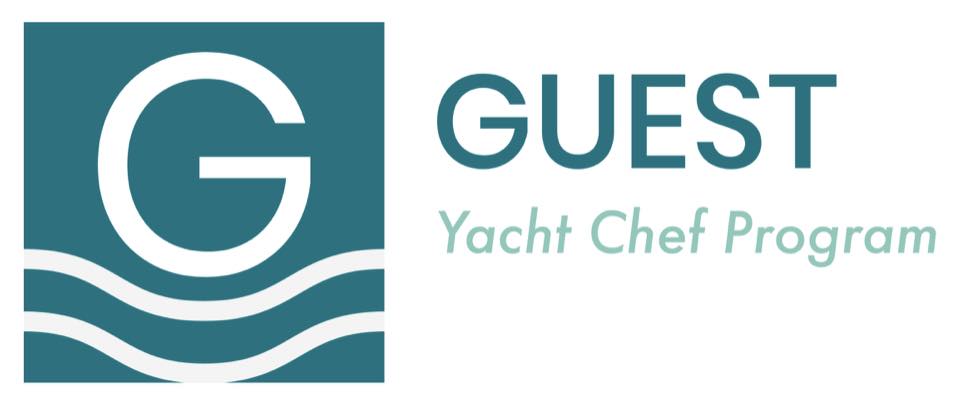
The role of a Yacht Chef is demanding and calls for unique knowledge in how to manage the Galley. This includes adapting to cooking in a new environment, adhering to safety regulations, and sourcing luxury food items, often from remote or unconventional locations.. The Chef Program prepares chefs and cooks for working onboard by covering essential topics. Unlike other departments with mentoring support, first-time Yacht Chefs often face challenges due to the absence of department-specific guidance.

GUEST Yacht Chef Units:
GUEST Introduction to Yachting & Yachting Life | Unit 23
- The demographics of the yachting sector, its sub-divisions & relevant Industries
- Professional Yacht CV presentation, & job search etiquette
- Employment Contracts, SEAS, & salary expectations
- Life at sea as a crew member
- Yacht orientation & seamanship terminology
- Ethical Code of Conduct / Yacht Standing Orders
- The roles of each department & duties of crew positions
- The onboard hierarchy & chain of command
- The onboard standards of personal presentation & hygiene
- The expected etiquette & behaviours as a crew member
- The standards of attention to detail required onboard a yacht
- The Importance of communication & communication styles
- The etiquette of meeting & interacting with guests
- The diversities & differences of cultures & behaviours.
- Maintaining personal health & wellbeing & how to find support
- The responsibilities of employers & crew for health & safety in the maritime industry
GUEST Introduction to Yacht Galley Operations | Unit 24
- The occupational duties & roles of the Galley Crew, inc. Yacht Chef, Sous Chef & Crew Cook.
- The protocols of Galley communication & interaction with guests, crew & management
- How to direct & manage the different service styles, & use of service terminology
- Menu Planning for owners, guests & crew, & following the guest preference sheets
- The different cultural, religious & dietary requirements
- Processes for provisioning, planning & sourcing ingredients & luxury produce worldwide
- Managing provision budgets & the charter advance provisioning allowance. (APA)
- Stock controls & stock turn over within the parameters of the onboard storage, regulations & restricted space issues
- Managing regular inventories, administration checklists & scheduled equipment maintenance
- Galley department hazards, safety & risk assessments
Safe Working Practices & the health & safety compliance in catering in the Maritime Industry - Managing maintenance procedures & cleaning routine
Additional Chef Modules (Non GUEST)
Food Safety Training
Food Safety Training is an Maritime Labour Convention 2006 requirement & applies to all crew working on board MLC compliant vessels who are involved with food handling.
Regardless of number of crew or size of vessel, any person who handles food, whether for guests or crew, needs to hold a recognised & valid certificate.
Ships Cook Certificate
The Maritime Labour Convention 2006 mandates that the principle chef or cook working on a commercially registered vessels operating more than 60 miles away from a safe haven and having a total onboard crew of 10 seafarers or more must have a qualified Ships Cook Certificate as a mandatory requirement.
